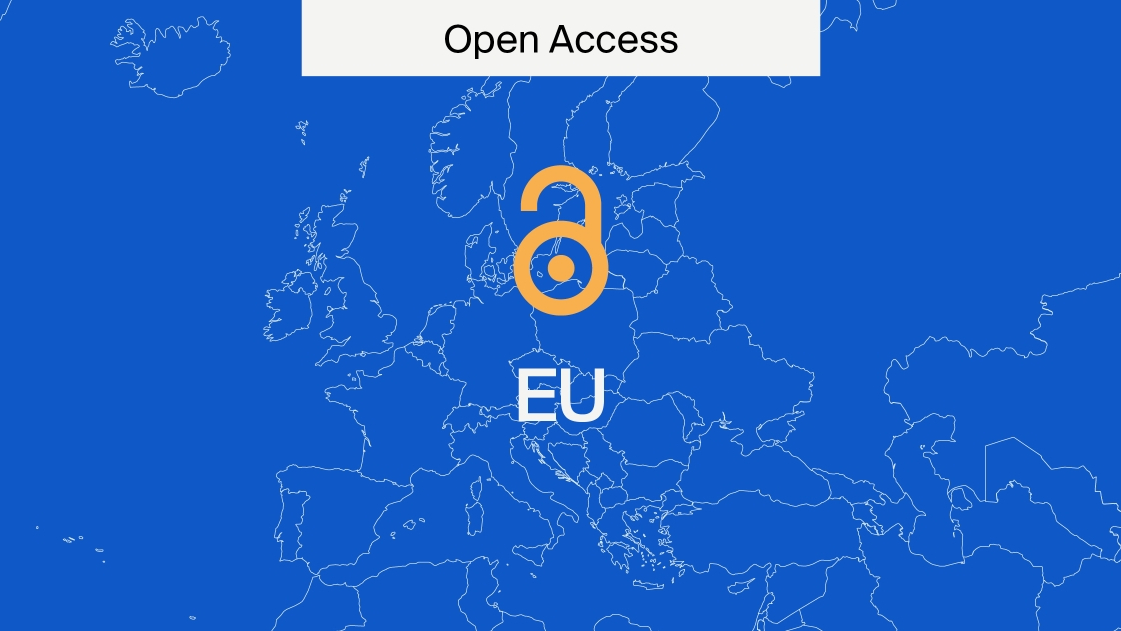
Open Access in Japan
Japan is expanding its Open Access policy. Since 2013, Open Access has been regularly discussed at a policy level, especially in relation to innovation. But policies have been less restrictive and slower than in other countries, like the USA. However, by 2025, it will be required that articles resulting from nationally funded research in Japan must be made Open Access immediately on publication.
“Open science” is used interchangeably with “Open Access”. Here, we outline the history of the Japanese government’s mandates and its current policies for those looking to submit their research.
Open Access is the new paradigm
Open Access refers to a publishing model for scholarly research that makes information immediately available to readers at no cost. This research is also free to reuse for scholarly purposes.
The benefits of publishing Open Access include more citations and a greater impact, reaching a wider audience, advancing scientific innovation, authors retaining copyrights, and increasing the potential for collaboration and recognition. Open Access can also help researchers affiliated to institutions and universities in low- and middle-income countries by removing any price barriers to accessing academic research.
History of Open Access in Japan
Japan has cautiously introduced Open Access requirements. Here is a brief history of Open Access in Japan, which we’ll expand upon further below:
- 2013: The initial JST Policy on Open Access was the first Open Access policy adopted by a major funding agency in Japan. It recommended that researchers deposit their work in an institutional repository or an Open Access journal to fulfil its requirements.
- 2016: The G7 Science and Technology Ministers’ Meeting in Tsukuba, Ibaraki, included discussions about the significance of Open Science. This recognised the need to integrate open principles into all aspects of science, technology, and innovation to ensure it achieves the broadest impact possible.
- 2016: The 5th Basic Plan created by the Government of Japan addressed Open Access. It set the aim of establishing a system for promoting Open Science in collaboration with relevant stakeholders. Also, it led to the establishment of an expert panel on promoting Open Science, which led to the updated 2017 JST policy.
- 2017: The JST Policy on Open Access to Research Publications and Data Management updated the 2013 JST policy. It recommended that research data should be preserved and managed appropriately, requiring authors to submit a Data Management Plan.
- 2017: Established at the National Institute of Informatics (NII) for the purpose of developing and operating research data infrastructure, the Research Data Management Platform was launched. This is a foundational part of the Japanese open science ecosystem as it supports archiving and accessing data.
- 2021: RIKEN, the most comprehensive research institute for natural sciences in Japan, launched the RIKEN Open Science Portal.
Development of Open Access
Whilst critics have argued that Japan’s Open Access development has been slow, the restrained approach has enabled the establishment of a robust open science infrastructure that recognises the importance of data. Moreover, momentum for Open Access is gaining in Japanese universities, highlighting the effectiveness of this approach.
Let’s first look at Japan’s research ecosystem.
Japan’s research ecosystem
Japan is a world leader in scholarship. It has a vibrant and highly developed research infrastructure of over 3400 universities, colleges, and research institutions that include many internationally renowned scholars. It produced over 127,000 scientific and technical publications in 2020.
Led by the Japanese government is the Ministry of Education, Culture, Sports, Science, and Technology (MEXT). This broad centre encompasses a diverse group of government agencies and helps ensure there is a unified approach to open science. Furthermore, the MEXT actively cultivates collaborations between universities and business enterprises.
Overseen by the MEXT, the Japan Science and Technology Agency (JST) aims to build infrastructure that supports knowledge creation and dissemination. It was formed in 2003 and adopted an Open Access policy in 2013.
The JST hosts J-STAGE, an electronic journal platform for science and technology information in Japan, and Jxiv, a preprints server. J-STAGE provides free access to full-text electronic journal articles; it currently publishes more than 3000 mainly Open Access journals, enabling Japanese societies to host their journals on it for free.
Typically, Japanese funding bodies like the JST have adopted less restrictive Open Access policies than those by the USA and EU. This reflects the collaborative approach taken by the MEXT, as consultation across the industry has encouraged more accommodating policies, and that the JST is ultimately a funding provider and a platform to host journals, so it must balance its interests.
Current Open Access laws in Japan
In 2022, JST updated its Open Access policy. This echoes the 2017 policy, which states “Open Access should be applied to all research publications in principle”. ‘In principle’ here implies that Japanese policy remains accommodating and is not yet mandating that authors submit to a gold Open Access journal.
Instead, the policy introduced an embargo period for green Open Access. At minimum, articles funded by the JST must be made publicly accessible in an institutional or public repository within 12 months of publication.
There is no mention of hybrid journals or licensing. This ambiguity again reflects the accommodating nature of the Japanese policy, also highlighted in its mention of cooperating with research institutions and other stakeholders to implement the policy.
The interconnected nature of the Japanese research ecosystem centred around the MEXT has led to a slower implementation of Open Access requirements than that of the EU’s Plan S, which took a more radical and disruptive approach. A more iterative approach, which involves establishing a robust infrastructure, is being enacted.
Open data
Japanese policy, however, recognises the importance of data being accessible.
The 2022 JST policy reiterates the 2017 policy, which requires researchers submit a Data Management Plan before beginning their project. The policy instructs researchers to “preserve and manage research data appropriately”. The Japanese government recognise the rapidly growing importance of data, largely supported by the rise in AI capabilities.
J-STAGE Data and RCOS are data platforms for researchers to easily store and access data. The latter establishes a circular ecosystem in which researchers can disseminate and manage their data and discover more.
Moreover, the 2022 policy requires that researchers create and establish a way to process their metadata to ensure it is readable by online databases and search engines.
Japan Open Access statistics
Japan has already seen a steady decline in articles published as subscription-only and an increase in those published as Open Access. Here are some statistics from Scopus:
- 2012: 68% of articles were subscription-only, 6% were green Open Access, and 8% were gold Open Access.
- 2016: 55% of articles were subscription-only, 6% were green Open Access, and 20% were gold Open Access.
- 2022: 43% of articles were subscription-only, 7% were green Open Access, and 39% were gold Open Access.
Evidently, there has been a gradual shift from subscription-only to gold Open Access publishing, despite the lack of an official mandate. The consistent number of green Open Access likely reflects the JST requirements to submit work to a repository, which will likely rise now the 2022 policy update has taken effect.
Future trends
As mentioned, in 2025, articles resulting from nationally funded research must be made Open Access immediately upon publication. The exact details of this have not been specified, apart from the year it will take effect. In June, the Science Ministry announced it will be assigning funding to universities to build infrastructure to make research papers free to read on a national scale.
Japan has the fifth biggest output of articles worldwide, so its transition to Open Access will serve as a model for other countries seeking to follow it. As mentioned, government initiatives since 2013 have consistently addressed Open Access, and likely will continue to, albeit at a slower pace than the EU and USA.
The Japanese government recognises the importance of distributing research results to the public but is doing so by establishing a robust infrastructure rather than strictly mandating immediate Open Access.
Open Access also links to other initiatives. These include boosting Japan’s international influence in science and technology research. International collaboration and closing the gap between its top researchers and the broader community are two elements of this that Open Access will facilitate.
Therefore, it’s likely that Japan will further solidify and develop its Open Access infrastructure, particularly around data, and use this to meet its aims of boosting its global research presence.
Value of Open Access
All articles published by MDPI are made immediately available worldwide under an Open Access license. This means:
- Everyone has free and unlimited access to the full text of all articles published in MDPI journals;
- Everyone is free to reuse the published material if proper accreditation/citation of the original publication is given;
- Open Access publication is supported by the authors’ institutes or research funding agencies by payment of a comparatively low Article Processing Charge (APC) for accepted articles.
Researchers can satisfy Japan’s expanding Open Access policy and pre-empt any stricter legislation by publishing in an MDPI journal. Alternatively, if you want to publish an early version of your article, try Preprints, our service for publishing early versions of research that are not peer-reviewed and report on either ongoing or complete research.
Open Access makes vital information accessible to all readers and researchers and brings together scholars from across the world. Thus, it is ideal for tackling global challenges such as climate change and cancer research that require urgent and coordinated attention.
Japan is gradually expanding its Open Access policy slowly but surely. Click here if you would also like to learn more about Open Access around the world.










